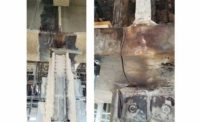A report by the Urban Land Institute’s Rose Center for Public Leadership in Land Use indicated that the goals of building an entertainment and sports complex and intermodal transit facilities at Sacramento’s Railyards redevelopment site are “achievable and desirable,” according to city officials.
Specifically, the report indicates that the intermodal transit facilities and sports complex can be accommodated in the southern section of the Sacramento Railyards in a "symbiotic way that creates public space, provides connectivity and achieves synergies with surrounding districts,” according to the interdisciplinary panel of urban planning and development experts assembled by the ULI Rose Center.
The panel confirmed city staff’s conclusion that both facilities can be accommodated successfully in the area identified in the ICON/Taylor proposal. However, they noted that important design challenges need to be carefully addressed and additional land to the east would be required to accommodate all the future functions of the intermodal facilities.
ICON-Taylor, a group of development consultants recruited by Sacramento Major Kevin Johnson, was tasked with determining the feasibility of a new sports and entertainment venue for Sacramento and the Sacramento Kings in February. The group, comprised of ICON Venue Group, David Taylor Interests, Populous and Turner Construction, presented its report to city leaders in late May.
The new complex is projected to be completed by May of 2015 at an estimated cost of $387 million. The proposed complex would include 1,368 for NBA games as well as luxury and premium seats. (The Kings owners have threatened to leave Sacramento unless a new arena is built.) The new facility would also be able to accommodate top concerts, shows, and other events.
Meanwhile, Think BIG Sacramento, a regional initiative launched by Mayor Johnson to get the development moving, released a report that outlined ways that various user fees can be used to fund the project. The report identified a number of revenue streams, such as naming rights, ticket surcharges, arena fees, business improvement districts related to increased tourism, and parking.
Think BIG executive director Chris Lehane says the project will create more than 4,000 jobs and $7 billion in economic development.




